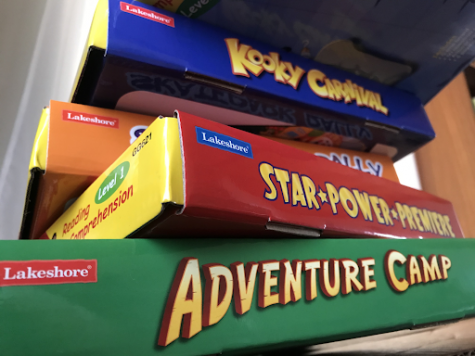Do We Still Read?
Less than 16% of US high school seniors reported reading a newspaper, book, or magazine daily in 2018, compared to 60% in the 1970s. Is that surprising? Unfortunately, probably not. The United States is tied for 22nd place with Germany for time spent reading per person per week. Reading has been in severe decline for decades, and the problem is only getting worse.
So, yes, this is a national issue, but how do we see it at Friends? With sports and activities on top of schoolwork, many students report not having enough time to read. However, one 10th grader said, “I have time to read because I make time.” Our generation spends a lot of time on social media, and sometimes the trap of mindless scrolling takes a surprisingly significant amount of time out of the day. All of the teachers interviewed said that they hope their students read outside of school, but other forms of media are definitely more common. One teacher even said that she doesn’t think a single student in her classes reads for fun. According to a survey sent to the 11th grade, a little under 30% of students read independently, but 50% said they would if they had the time to. However, though only 18 of 101 students responded to the survey, and because of voluntary response bias, this is not a very accurate representation of the school.
School is supposed to encourage individual intellectual pursuits, but actually it often does the opposite. Even some students who enjoy reading report that school assignments dampen that enthusiasm; annotation and unrelatable subject matter make it harder for them to engage with the story. A 10th grader mentioned that this makes reading “more work [than] you have to do, so it’s not so fun anymore.” As in the parable of the whitewashed fence in Tom Sawyer- a task is fun if you act like it is fun, but becomes work when treated as such. As Ms. L’Ashley commented, “part of the reason is that educators have made it not about reading for the sake of reading.” The English teachers do try to combat this negative association of reading with schoolwork using multiple tactics. Mr. Wetherell has his ‘Mr.Wetherell is currently reading’ bulletin board to encourage by example and also to provide suggestions for the student that finds the time to read but then doesn’t know what to read. Ms. L’Ashley tries to make books relatable to students so the experience is more personal and interesting, which hopefully then encourages her students to read other books. While these methods are effective for some students, both say that the majority do not respond. Another way school discourages reading, Mr. Wetherell says, is the “structured schedules [students] have today that leave little time for intellectual pursuits of their own devising.”
In our digital age, is reading even relevant? Mrs. Fornell says that film and television shows are “equally valid forms of literature” and Mr. Wetherell also suggested that “our culture is less inclined to read than it once was” and that there “has been a sort of anti-intellectualism that has gripped America for some time.” All the teachers and students agreed that reading is unique in one respect: it allows the opportunity to get inside someone else’s head. You can see the world through another perspective, one that you may not have previously considered. A 12th grader stressed how reading is a “reminder that people are dimensional,” and even though social media can provide you with multiple perspectives, you “just don’t get that depth of understanding.” Reading builds empathy in a way that movies and television can’t, because books bring you through the mind of the author and characters, while it’s uncommon? for a movie to do so. Mr. Wetherell also pointed out how reading develops critical thinking skills, and “democracy is only as strong as the education of its people.” If nobody thinks critically of the government, then the point of democracy is undermined.
Besides the personal benefits of reading, there are certainly academic benefits as well. Reading develops not only critical thinking, but also writing skills, which are important throughout adulthood. So, if you find the time, pick up a book! If you need any recommendations, the English department will be happy to help you.







